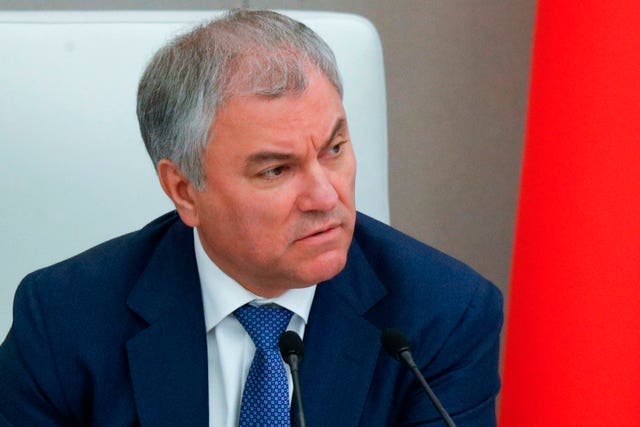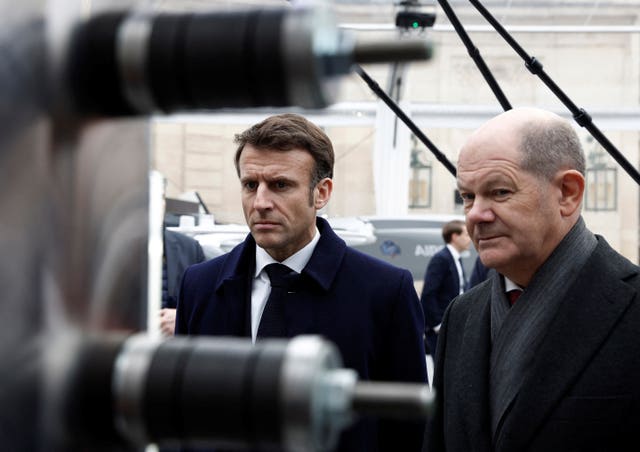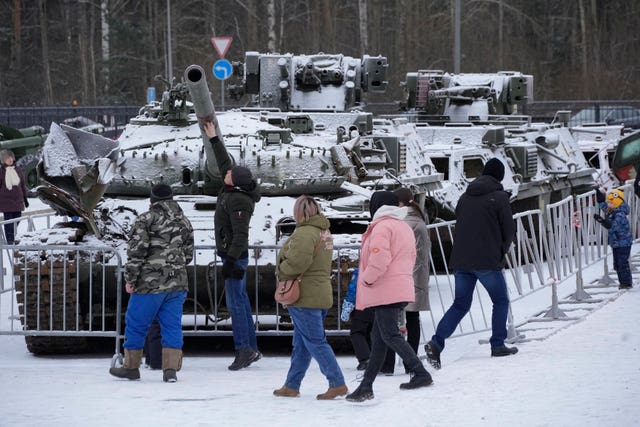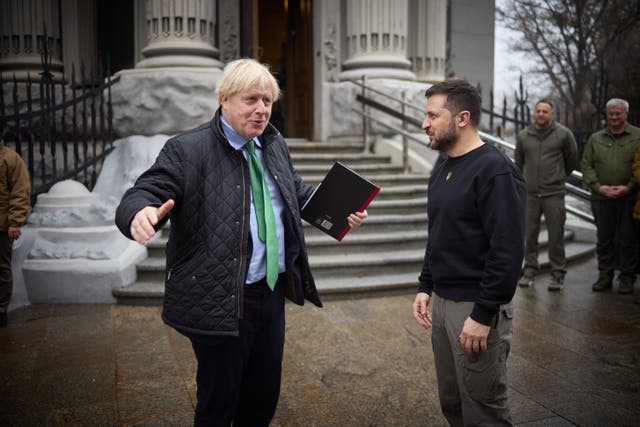Countries arming Ukraine risk own destruction, warns Russian official
State Duma chairman Vyacheslav Volodin said supplies of offensive weapons to the Kyiv regime would lead to a ‘global catastrophe’.

The speaker of Russia’s parliament warned that countries supplying Ukraine with more powerful weapons risked their own destruction.
The message followed Ukraine’s supporters pledging billions of pounds in military aid to the country on Friday, including armoured vehicles, air defence systems and other equipment, but not including the battle tanks Kyiv had requested.
State Duma chairman Vyacheslav Volodin said: “Supplies of offensive weapons to the Kyiv regime would lead to a global catastrophe.”

The commitments made on Friday were overshadowed by defence leaders failing at an international meeting in Ramstein, Germany, to agree on Ukraine’s urgent request for German-made Leopard 2 battle tanks.
Germany is one of the main donors of weapons to Ukraine, and it ordered a review of its Leopard 2 stocks in preparation for a possible green light.
Nonetheless, the government in Berlin has shown caution at each step of increasing its commitments to Ukraine, a hesitancy seen as rooted in its history and political culture.
Mr Macron spoke during a during a news conference in Paris with German chancellor Olaf Scholz as their countries commemorated the 60th anniversary of their post-Second World War friendship treaty. In a joint declaration, France and Germany committed to their “unwavering support” for Ukraine.
France would make its tank decision based on three criteria, Mr Macron said: that sharing the equipment did not lead to an escalation of the conflict, that it would provide efficient and workable help when training time was taken into account, and that it would not weaken France’s own military.
Mr Scholz did not respond when asked about the Leopard 2 tanks on Sunday, but stressed that his country had already made sizable military contributions to Ukraine.

Germany’s tentativeness has drawn heavy criticism, particularly from Poland and the Baltic states, countries on Nato’s eastern flank controlled by Moscow in the past and which feel especially threatened by Russia’s renewed territorial ambitions.
Polish prime minister Mateusz Morawiecki said that if Germany did not consent to transferring Leopard tanks to Ukraine, his country was prepared to build a coalition of countries that would send theirs anyway.
“Almost a year had passed since the outbreak of war,” Mr Morawiecki said in an interview with Polish state news agency PAP published on Sunday.

“Above all, Berlin should not weaken or sabotage the activities of other countries.”
In Washington, two leading lawmakers urged the US on Sunday to send some of its Abrams tanks to Ukraine, in the interests of overcoming Germany’s reluctance to share its own, more suitable Leopard 2 tanks.
“If we announced we were giving an Abrams tank, just one, that would unleash” the flow of tanks from Germany, Michael McCaul, the Republican chairman of the House Foreign Affairs Committee, told ABC’s This Week On Sunday.
“What I hear is that Germany’s waiting on us to take the lead.”
Mr Medvedev, a former Russian president, warned on his messaging app channel that Russia could seek to form a military alliance with enemies of the United States.
He did not name the nations he had in mind, but Russia has defence co-operation with Iran and Venezuela, an existing military alliance with Belarus and strong ties with North Korea.
Since invading Ukraine, Russia also has increased both the scope and the number of its joint military drills with China.
Ukraine is asking for more weapons as it anticipates Russia’s forces launching a new offensive in the spring.
Oleksii Danilov, the secretary of Ukraine’s Security and Defence Council, warned that Russia may try to intensify its attacks in the south and in the east and to cut supply channels of western weapons, while conquering Kyiv “remains the main dream” in President Vladimir Putin’s “fantasies”, he said.
He described the Kremlin’s goal in the conflict as a “total and absolute genocide, a total war of destruction”.

Among those calling for more arms for Ukraine was former British prime minister, Boris Johnson, who made a surprise trip to Ukraine on Sunday.
“This is the moment to double down and to give the Ukrainians all the tools they need to finish the job. The sooner Putin fails, the better for Ukraine and for the whole world,” Mr Johnson said in a statement.
Mr Johnson was pictured in the Kyiv region town of Borodyanka. He said he had travelled to Ukraine at the invitation of President Volodymyr Zelensky.





